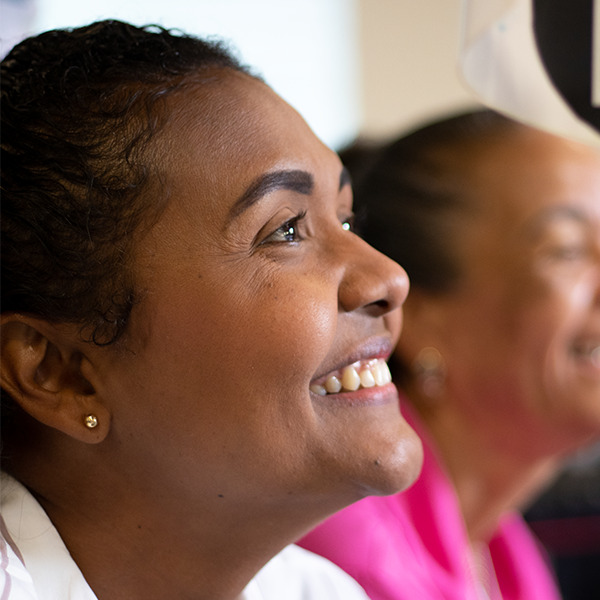A July meeting in Uganda provided GFC partners from sub-Saharan Africa with an opportunity to exchange ideas for making learning more creative and joyful.
Global Fund for Children’s Partnership to Educate All Kids (PEAK) initiative, supported by the LEGO Foundation, connects local organizations around the world that are helping children who have experienced pandemic-related education disruptions access and thrive in learning environments that prepare them for future success.
“Adults want to see an adult in a child instead of seeing a child in a child,” said Joseph Sinyangwe from Creative Hands.
This is one of the most powerful statements that came out of the GFC’s PEAK initiative convening in Uganda. GFC PEAK partners from Ghana, Kenya, Uganda, and Zambia came together to connect, share experiences, and explore some of the play-based methodologies they use in their work to help children enjoy learning.
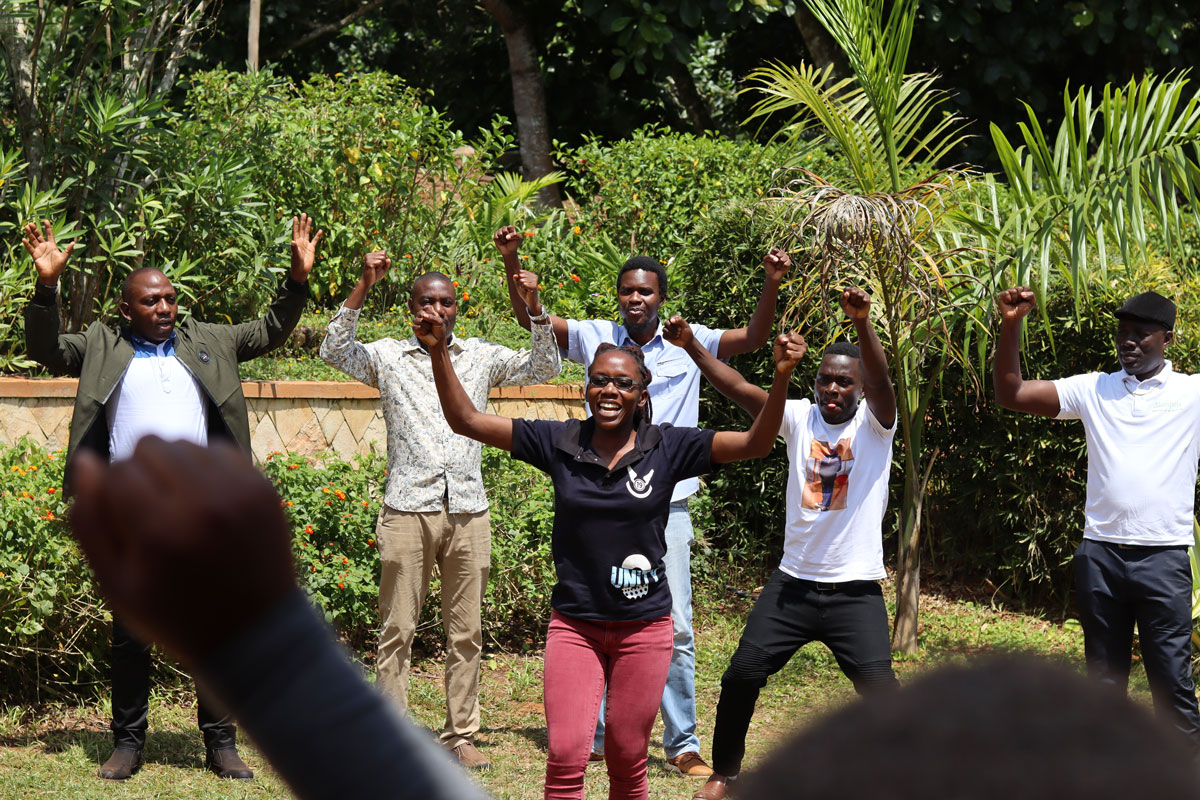
Many adults underestimate the intrinsic value of play in the holistic development of a child. In some cases, they do not think of play as an effective way of enabling children to learn some of the most important lessons of life. PEAK initiative partners across the world are changing the narrative and promoting a love for learning through play-based approaches.
With the support of the LEGO Foundation, PEAK initiative partners across the world are employing innovative ways to overcome learning barriers exacerbated by the COVID-19 pandemic. The initiative supports the learning and development of children aged 6 to 12 by enabling local organizations to sustain or expand their work and develop their capacity to integrate learning through play.
At the convening, GFC partners identified some of the benefits of learning through play, at the same time highlighting how it enables children to reach their full potential. This is what they shared about why learning through play matters:
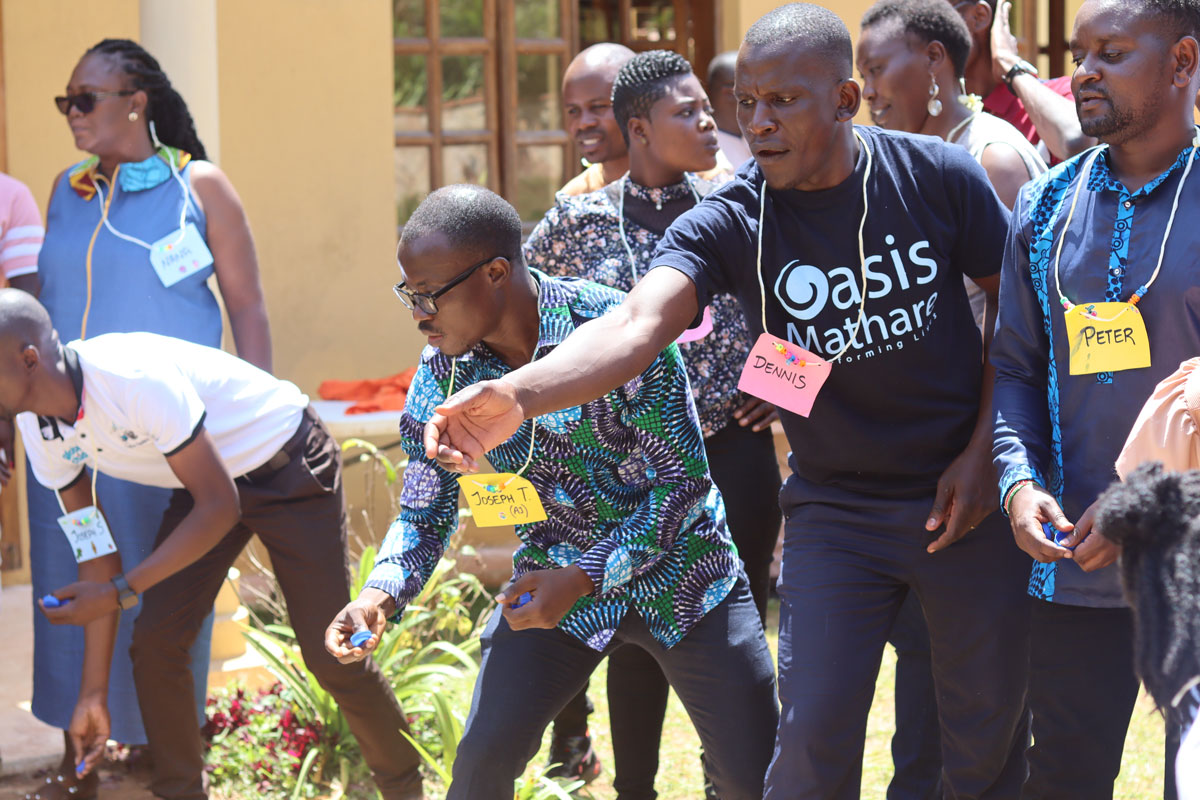
It stimulates creativity and innovative thinking
Tools and resources for play are readily available around us. Materials we often take for granted are creatively used by children to make play more fun and enjoyable. Play allows children to harness their imagination, think outside the box, use anything they find in their surroundings, and create their own fun.
“Play gives children the freedom to think, to explore, be creative, and in the process learn,” Murielle Maupoint from Play Action International explained while facilitating a session on boosting education through play.
Triumph Tetteh from GFC Partner Starters Technology echoed this idea. “In Africa, we can use things in our surroundings. All we need to do is to step outside, take a stone, make a toy, and start playing.”
At the convening, partners had a chance to use locally available banana fiber, leaves, and sticks to make balls, dolls, and skipping ropes that can be used in play.
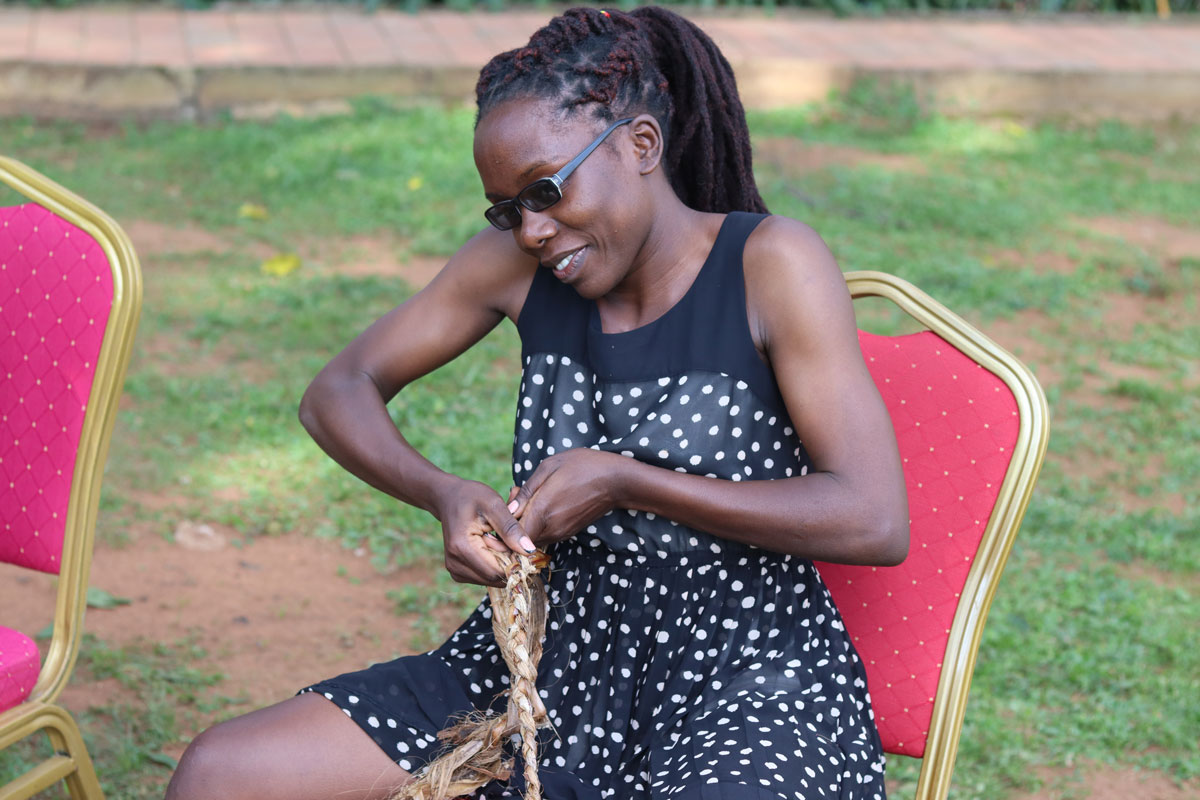
It boosts confidence
Some children are introverts and struggle to speak up or actively participate in a classroom setting. Learning through play is an alternative way to build their confidence and allows children to build each other’s confidence. Play promotes independence and allows children to experiment while at the same time recognizing their self-worth.
It encourages more children to participate
“Fun is why children enjoy learning,” said Zico Ishaq Abubakar Newton from another PEAK partner, Mother of all Nations Foundation.
All children love fun, and you can expect excitement and full engagement when learning is fun. When learning is made interesting and playful, it attracts children who would not otherwise participate.
It is inclusive
Different types of play offer different types of developmental benefits to children. Through the PEAK initiative, GFC partners have exchanged knowledge on some of the games and activities that ensure all children participate and learn, regardless of their individual challenges. Some of the play-based strategies promote the use of sign language to communicate. Others require critical thinking, resilience, confidence, and other life skills that ensure no child is left behind.

It helps to unearth hidden abilities
Some talents and unique abilities in children can be discovered during their play. Play-based learning helps parents and teachers to understand children and nurture their talents while they are still young.
It develops children’s social skills
Play helps children to develop interpersonal skills that allow them to communicate and develop relationships with others.
Christine Jangwen from PEAK Partner BaNgaAfayo Initiative Uganda explained, “It is through play and socialization that children learn. We are coming from different countries, we did not know each other, but because the convening sessions are more playful, interactive, and fun, we started talking to each other and building networks.”
It makes learning easier
Learning can be hard, more so when using the traditional methods, which are less interactive and participatory. Learning through play is more engaging for children, making it easier for them to grasp complicated subjects.
It provides children with a new experience
Children in some of the communities where we work experience hardships, and learning that is exciting is an opportunity for them to escape from their everyday realities. Learning through play exposes children to a variety of experiences in an environment that is relaxed and allows them to thrive.
According to Tetteh, “When a child goes into the classroom, we want to give them a new experience, hence we have adopted the playful learning approach.”
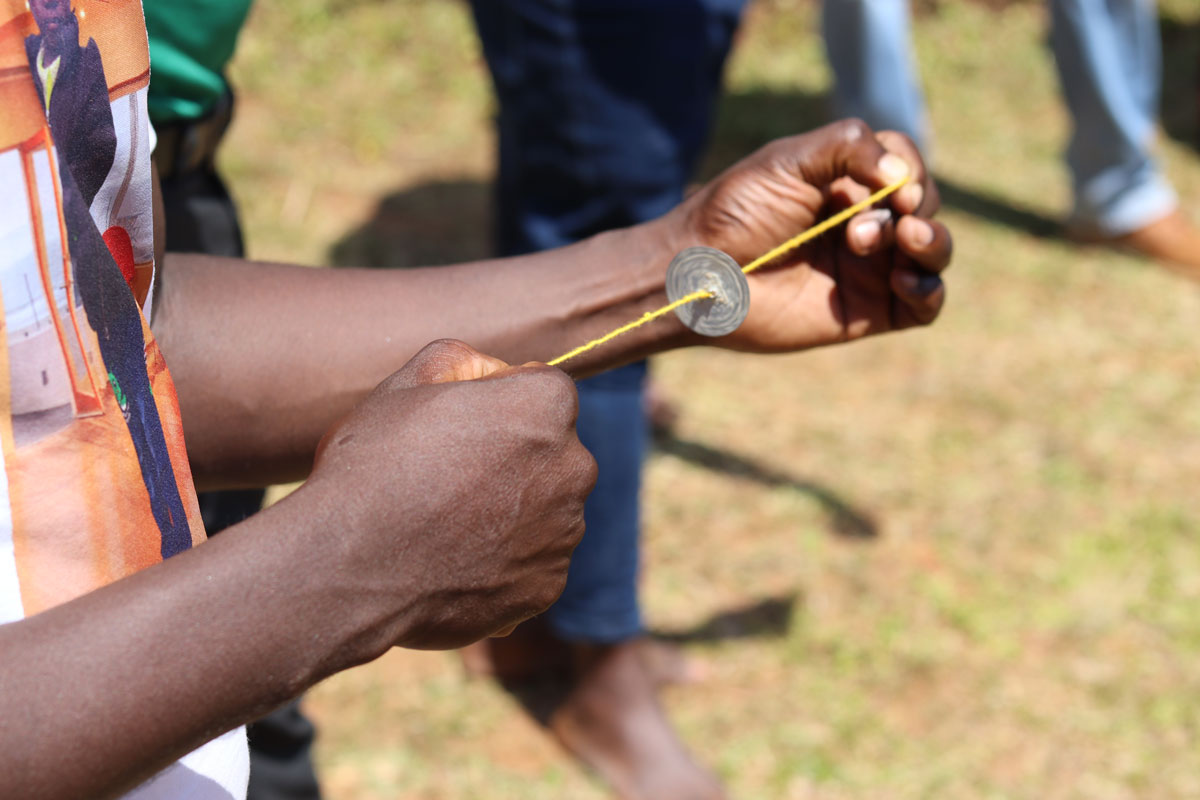
It helps maintain indigenous culturE
For PEAK initiative partners in Africa, learning through play goes far beyond advancing children’s educational outcomes. Some partners are using play-based methodologies to maintain or reclaim Indigenous cultures.
The PEAK initiative has resulted in stronger networks for advocacy and learning, thus enabling grassroots organizations to connect and exchange notes on innovations and different approaches to working with children.
The impact of the PEAK program globally cannot be overstated. It is transforming the lives of children and their communities in a positive and meaningful way. With the support of the LEGO Foundation, GFC is providing funding and capacity development to 66 grassroots organizations in ten countries. We are immensely grateful to the LEGO Foundation for their partnership, vision, and support.
Header photo: PEAK partners participating in an experiential learning activity. © GFC.

